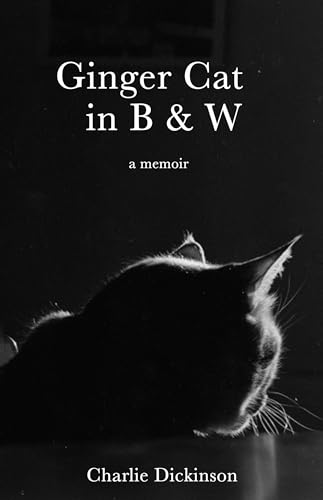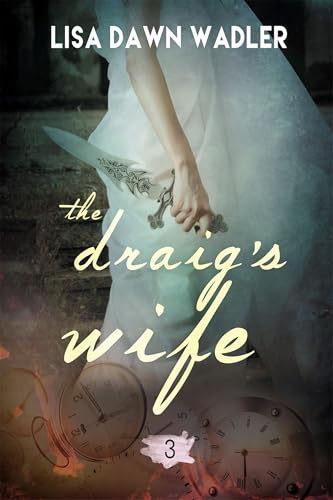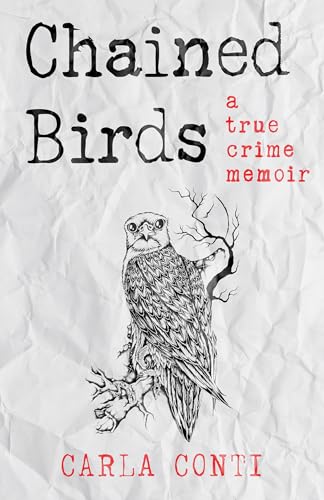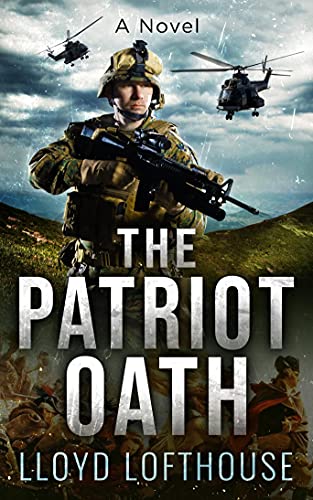Last week we announced that Heart Stealers is our Romance of the Week and the sponsor of thousands of great bargains in the Romance category: over 200 free titles, over 600 quality 99-centers, and thousands more that you can read for free through the Kindle Lending Library if you have Amazon Prime!
Now we’re back to offer our weekly free Romance excerpt, and if you aren’t among those who have downloaded Heart Stealers, you’re in for a real treat:
Let best-selling authors Kathryn Shay, Patricia McLinn, Judith Arnold and Julie Ortolon take you on the life-changing journeys of four men who find their soul mates in four very strong women. Four complete novels in one volume.
COP OF THE YEAR, Book One of the Bayview Heights series–When Captain Mitch Lansing is assigned to Cassie Smith’s high school classroom, sparks fly. He’s by-the-book, and she’s unorthodox and innovative in her teaching methods. But when Mitch develops an unstoppable bond with her students, Cassie finds her attraction to him irresistible.
“In COP OF THE YEAR (4 1/2 Stars Gold Medal), master storyteller Kathryn Shay pens an emotionally powerful tale that leaves you breathless. Woven into this riveting plot are wonderfully written characters that grab your heart and don’t let go. Bravo Ms. Shay!” RT Book Reviews
LOST AND FOUND GROOM, Book One of the A Place Called Home series–Chasing a story, hardheaded journalist Kendra Jenner is caught in a vicious hurricane…and unexpectedly in the arms of a stranger who speaks no English. Fear leads to passion leads to their making a baby. Three years later, “Paulo” arrives at her Wyoming home, speaking perfect English, and with a new name. He announces he’s come for his son and for her.
LOST AND FOUND GROOM is “…bursting with wonderful Patricia McLinn romantic touches — powerful characters, strong interplay and fiery moments.” RT Book Reviews
SOMEBODY’S DAD, from the Daddy School series–Fund manager Brett Stockton wants love, commitment, maybe even marriage—but no kids, period. Falling in love with photographer Sharon Bartell is easy. She’s everything he could possibly want in a woman…except that she’s the single mother of a two-year-old son. Can Brett learn to love Max? Or for both Max and Sharon’s sakes, should he walk away?
“Judith Arnold lives in a blessedly gimmick-free universe. No quirky plot devices, no revolutionary narrative structures, just stories of interesting people falling in love.” The Romance Reader
And here, for your reading pleasure, is our free excerpt:
COP OF THE YEAR
KATHRYN SHAY
Author’s note: COP OF THE YEAR was originally published in 1997. For many of my backlist books, I revised the stories to be current enough to take place today when I republished them. I did not revise this book because Mitch is a Vietnam Veteran, and this is a focal point of the story. The sequels to the book, BECAUSE IT’S CHRISTMAS and COUNT ON ME, also take place from 1997-2000. Cell phones and other technology are also not inserted. KS
Cop of the Year received a gold medal and the Review’s Choice Award from RT Book Club, and also the Desert Rose Golden Quill Award.
CHAPTER ONE
“AM I UNDER ARREST?”
Mitch glanced at the kid draped on the wooden bench in the squad room. “What did the officer who brought you in say?”
“Can’t you just answer a freakin’ question?”
Mitch sighed. Insolent punk.
“No, you’re not under arrest. But if you don’t keep your mouth shut, I could probably find a reason to keep you here.”
Burning brown eyes held his. “Yeah, well you’ve already done enough damage. What’s a little more?”
“A record of arrests doesn’t look good, Battaglia.”
The boy settled down, and Mitch finished typing his report into the computer. When he was done, he set it to print and leaned back. Linking his hands behind his neck, he stared at the young man who was headed for trouble. Mitch had seen too many others in New York City, and in Long Island suburbs like this one. “Who do you think took the scalpels? Since you contend you didn’t.”
Battaglia raked a shock of thick black hair off his brow. “I don’t know. There were lots of people in the operating room. Other orderlies, janitors, the guy to pick up the anesthesia stuff. Hell, maybe some nurse on crack took them to sell.”
Mitch eyed the kid’s jacket, lying on the bench next to him. The Blisters was printed in large capital letters on the back, surrounded by exploding fireworks in vivid red. Blood red. “You sure you didn’t take them? For the next street fight? I hear scalpels are the newest weapons of choice.”
“I don’t fight.”
“No, you go to tea parties with your gang buddies.”
“Listen, man, if I’m not under arrest, why do I have to stay here?”
“Because you’re under eighteen. Our town ordinance says an adult has to sign you out if you’re picked up by the cops for any reason.”
“I’ll be eighteen in a few months.”
“Should have waited until then to get into trouble.” Mitch rose to remove the paper from the printer.
The boy stood, almost matching Mitch’s height. “I didn’t do anything.”
“Sit down, Battaglia.” He sat. “Did you call someone?”
Eyes full of resentment stared back at him. They were dark and hostile.
“Johnny, what happened?” a deep female voice called from behind Mitch.
He turned to see a woman in the doorway. This was the kid’s mother? God help him. She couldn’t be more than thirty. His policeman’s mind cataloged her features. About five-seven, tall for a woman. Her carriage was an odd combination of athletic grace and streetwise toughness. She had delicate bone structure, big gray-blue eyes and strawberry-blond hair that hung in careless waves on her shoulders.
“Johnny?”
Battaglia stood again. “Sorry to get you up, Cassie. I didn’t know who else to call.” He leveled a venomous gaze on Mitch. “This pig said I need an adult to get me out of here.”
Ignoring his slur, the woman circled to face Mitch. “What happened?”
Mitch noted she didn’t ask what the kid had done. Interesting.
“Some scalpels were stolen from Bayview Heights General Hospital. Originally we thought Mr. Battaglia had taken them.”
Outrage made her eyes mostly blue. “And why is that?”
“He was the last one in the operating room.”
“He didn’t take the scalpels.”
“How do you know that?”
“He loves his job as an orderly. He’d never do anything to jeopardize it. He wants to be a doctor.”
Remorse flickered through Mitch. “We’re not arresting him. We just brought him in for questioning.”
“Because of his jacket.”
Mitch rammed his hand through his hair. “No, because he was the last one seen in the operating room.” He glanced at the jacket in question. “Though I hate seeing any gang paraphernalia in Bayview Heights.”
“He didn’t do it.”
“Probably not. We searched him and checked his locker.”
“And found nothing.”
Battaglia picked up his jacket and crossed to the woman, touching her hand gently. “It doesn’t matter, Cassie. I lost the job, anyway. They told me not to come back.”
Too late, Mitch tried to stop his reaction to the boy’s obvious pain, but he wasn’t fast enough to short-circuit it. Damn, he hated dealing with kids.
“Oh, Johnny.” She slid her arm around him. “I’m so sorry.”
The kid leaned into her for a minute, then whispered, “Get me out of here.”
Cassie turned to Mitch. “What do I have to do?”
“Go pick up your stuff in the outer office, Battaglia.” After Johnny left, Mitch retrieved a form from his desk.
“Sign here.”
When she gave it back to him, he scanned it, then said, “You need to fill in the relationship. Who are you?”
“His English teacher.”
Mitch stepped back. “His English teacher? Over at the high school?” He looked down at the signature. “Smith. You’re Cassandra Smith?”
She frowned. “Do we know each other?”
Mitch gave in to the urge to laugh. “Not yet, Ms. Smith.”
“What do you mean?”
“On Monday, I’ll be part of your class for the next ten weeks.”
“You’re joking.”
“I wish I were. You can blame the Resiliency Program cooked up by the school board and the town officials. They seem to think schools working with the police force will help make kids more resilient in dealing with today’s pressures.”
“I’ll never allow you in my classroom,” she said implacably.
“I never thought I’d come.”
o0o
CASSIE SMITH SLAPPED her hand down on the desk. “I won’t do it, Seth.”
“You don’t have any choice.” Her principal, Seth Taylor, was clearly choosing his words carefully; he wasn’t just pushing her buttons. He’d never do that, anyway. Not this man who’d saved her life, not this man who was responsible for her becoming the person—and the teacher—she was. “Now, sit down, take a deep breath and listen to what I have to say.”
She dropped into a chair. “I’m sorry. But a cop? You know how I feel about cops. This one has a history with my students already, and he’s only been in Bayview Heights a few months.”
“Cassie, your feelings about policemen come from things that happened eighteen years ago. You’ve gotten beyond everything else, why not this?”
Before she could respond, his phone buzzed. The principal sighed. “Do you mind if I take this? I’m expecting a call from the superintendent and I’ve had trouble reaching him.”
Cassie shook her head. “No, of course not. Do you want me to leave?”
“That’s not necessary.”
While he took his call, Cassie stood and wandered around the spacious office, comforted by the mahogany furniture and subtly striped wallpaper. On the side table was a picture of Seth’s son, Joey. After his wife died, Seth had raised the boy alone, and they were very close. Above the photo, plaques were proudly displayed on the wall: Outstanding Teacher of the Year, Civic Leader Award, Crime Prevention Scholar. Next to those was a framed inscription Cassie herself had given Seth when she graduated from high school and was on her way to college. It read “One good teacher can change a delinquent into a solid citizen.”
During his years as an English teacher at Bayview Heights High School, Seth Taylor had been the best. Once he’d become principal, he’d started an innovative At-Risk Program, where four teachers worked with the forty least motivated students in the school. Five years ago, he’d convinced Cassie to come back to her alma mater to teach one of the controversial classes. She’d bet her Grateful Dead T-shirt that if the program had been in place when she’d been here as a student, it would have kept her out of trouble.
Instead, she’d had too many run-ins with the Bayview Heights Police Department. She shuddered just thinking about them. Why was a cop coming to participate in her classroom program? And why this particular cop?
“Sorry.” Seth’s voice drew her away from the past. “Now, where were we?”
“You were about to try to convince me that this cop thing is going to fly.” When he started to speak, she held up her hand, palm outward. “No, wait. I know the routine. ‘Cassie, it’s best for the kids. Cassie, think of what it will mean to the program. Cassie, you’ve got to get past your personal bias to make this an experience that will save lives.’”
At forty-five, Taylor had flecks of gray in his dark blond hair and he was a little heavier than when he’d been her English teacher, but his deep blue eyes still twinkled back at her. “Am I that transparent?”
“Yes. It’s how you got me back to Bayview Heights, after all.”
“Lucky for us that I did.”
Cassie blew errant bangs out of her eyes. “Oh, God, I can’t believe this. Me and a cop working together.”
“It might be nice if you called him a police officer. He is a captain, you know.”
“Oh, yes, I know. He’s so by-the-book it’s scary. I saw his attitude toward Johnny firsthand. And then he testified against Amit—who’s barely staying in school—on the dealing charge.”
“As I recall, he saved Amit’s neck by recommending a community service punishment, instead of juvenile detention, so he could stay here as a student.”
Cassie sighed and sank into the chair. “Yeah, that’s true. But he’s just so stiff, so formal. Rules, rules, rules. Do you know how my class will appear to him?”
“You have rules, Cassie.”
“Yeah. Try telling that to Jerry Bosco. He thinks we run a zoo down in hall 400.”
Seth frowned at the mention of the veteran teacher who had vehemently opposed the At-Risk Program. Cassie knew Seth had had run-ins with the man, too, some of them very serious and long-standing. “Bosco’s just jealous of all the money that’s been funneled there.”
“No. He thinks advanced placement kids are the only ones deserving computers, field trips and special programs.”
“Which is what Mitch Lansing is, Cass. Part of a special program. Just like the ones we brought in from business and social services.”
“Why can’t he work with Ross’s math class? Or Jack’s social studies class?”
“You know he can’t. Ross and Jack have done their stints. You and Zoe get to participate this half of the year. And Zoe’s got the artists.”
“Why don’t I have the arts? I use art in English class more than she does in a science class.”
“Because the arts, writing and reading are part of every curriculum, not just language arts.”
Cassie smiled as she listened to Seth expound on his favorite topic. One of the first things he’d done when he became principal at Bayview Heights High School ten years ago was to erase as many lines as he could between the disciplines. Because of him, research papers became the requirement of all subjects, even math; reading and writing were heavily emphasized in each course; and physics teachers participated in the dance workshops and the improvisational theater specials. Seth Taylor had truly helped make Bayview Heights High School an innovative school.
“Then shorten the time. Every day for ten weeks is too much.”
Seth just stared at her.
“All right,” Cassie said with exasperation. “He doesn’t really start today, though, does he? I’ve got to prepare the kids.”
“Yes, he does. We knew something like this was in the works, but I just got word Friday afternoon exactly what kind of program it would be and when it would start. And I didn’t want to ruin your weekend.” He glanced at his watch. “But I’ll stall him here for half of your class. We’ll discuss the program, and I’ll get to know him a little. You can use the first part of that two-hour-block schedule you talked me into to prepare the kids.”
“All right.”
“I’m counting on you, Cass.”
For a minute, Cassie was transported back nineteen years. Seth had stood at her desk after one of his English classes and said those exact words to her. He’d known she was going to take off for good that night, to escape the seediness of the one-room apartment where she lived, the derogatory names people called her and her mother, the consistent failure in school.
She’d been sixteen.
And the man before her had encouraged her to stay, to keep a journal about her life, and he’d insisted she talk to him about everything. Finally he’d arranged legal and professional help for her. Cassie shuddered when she thought about where she’d be if it wasn’t for him.
Glancing down her leg, she caught sight of the small rose tattoo at her ankle. She’d had it done in a grungy tattoo parlor in Greenwich Village when she was fifteen; she kept it as a reminder of what it was like to be one of the kids she now taught.
“Cassie?” Seth’s question brought her back to the present.
“Yeah, I know you’re counting on me. Just like I know that you know exactly what you’re doing when you say that to me, Mr. T.” She used the old name intentionally, and it brought a smile to his face.
“Now go,” he said gruffly. “Unless you want to bump into Lansing.”
Cassie stood and hurried out of the office. She didn’t want to bump into Lansing now, or ever. But damn, she’d do anything for these kids, even it meant letting a cop—correction, a police officer— into her classroom.
o0o
MITCH LANSING WAS NOT a happy man. As he strode down the hallway with the principal of Bayview Heights High School, he cursed the fates that had brought him to this point in his life. How the hell had he ended up here?
When they reached the east wing of the school, the first thing he noticed was the low hum of student voices. There was occasional laughter punctuated by adult comments.
“Here we are.” Taylor knocked on the open door of 401.
Mitch looked around for Ms. Cassie Smith. Had she left the kids alone? They were all in a group in the far left-hand corner of the room. But they weren’t at desks. Some were on couches, some sat on the floor, one perched on top of a table. The area was plushly carpeted and brightly lit by the sun slanting in from uncovered windows behind them. He scanned the walls, taking in some of the posters: “School might be hard, but it’s better than growing up…The thing we call failure is not falling down but staying down…It’s what you learn after you know it all that counts.” He smiled at the sentiments.
Someone unfolded from a zebra-print stuffed chair and came toward them. Mitch’s smile disappeared when he realized who it was. She looked even younger today, probably because of the way she was dressed. Her clothes were casual—checked shorts that looked like a skirt and a long-sleeved wine-colored sweater. He tugged at his tie.
When she reached them, she held out her hand and smiled. Plastic. He knew it matched the one on his face.
“Hello, Captain Lansing.”
“Ms. Smith.”
Taylor stepped farther into the room. Mitch noticed that the kids had continued with whatever they’d been doing when he and the principal had come to the door.
“Silent sharing time?” Taylor asked.
She nodded.
“Can I go over?”
“You can go, but they probably won’t let you see their writing today.” She looked at Mitch. “No offense, Captain, but they aren’t too happy about having a stranger invade their turf. However, they’ve agreed to be civil, and it will work out, I’m sure.”
She didn’t sound sure, Mitch thought. Well, hell, neither was he.
As Taylor crossed to the far corner, the kids glanced up at him. Most greeted him congenially. He spoke to the girl sitting on the desk, and she smiled. He ruffled the hair of two boys who sat on the floor. A kid on the couch tipped his baseball cap to him.
“They’re allowed to wear hats in class?” Mitch asked.
Ms. Smith closed her eyes briefly. When she opened them, they reminded him of an overcast sky in January. “This isn’t a church, Captain.”
“No, but kids should show respect for their school.”
“And taking off your hat shows respect? Not in here. Read the poster over my desk. We have our own definition of respect.”
Mitch scanned the room. “Where’s your desk?”
She pointed to an area to the left. A big gray metal desk sat unobtrusively in the corner. It was covered with folders and papers. Next to it was a tall bookshelf that housed books, picture frames, more folders. Sure enough, on the wall behind her desk was a big poster—beautifully scripted by someone with artistic talent. The word respect was printed vertically, and each letter spun off horizontally into a statement. “R—Rules are for a reason, obey them; E—Expect and return common courtesies; S—Show others you care; P—Put a lid on negative comments, even if you have them; E—Exhibit pride in yourself and let others have theirs; C—Consider the effect your words and actions have on others; T—Take what you need but give what others have to have, too.
After he’d read it, Mitch turned back to the hostile Ms. Smith. Her face was smug. He was about to comment on the definition, when Taylor returned. “Where’s Johnny?”
Ms. Smith threw Mitch a scathing glance. When she looked at Taylor, though, her face showed very real concern and a surprising vulnerability. “No one knows. When we called home, his mother said she hadn’t seen him in three days.”
“Since Friday?”
“Yes.”
“Did you have any contact with him over the weekend?”
“No.” She bit her lip and something inside of Mitch shifted. “I’m worried.”
Taylor reached out and squeezed her shoulder. Not a smart move in these days of sexual harassment cases, Mitch thought.
“I’ll see what I can find out,” the principal told her.
“Thanks.”
As he walked to the door, Taylor said, “Good luck, Mitch. Stop and see me when you’re finished here.”
Mitch nodded, and Taylor left. Casually, Mitch stuck his hands in the pockets of his suit pants pockets and looked at Cassie. “I’m sorry the boy is missing,” he said simply.
“Are you?”
“Yes.” When she said nothing more, he asked, “Well, how do we start?”
Silently, she folded her arms over her chest and leveled wary eyes on him. “With the kids, of course. After all, that’s why you’re here. Come on, I’ll introduce you.” She looked him up and down. “I realize you’ve come to help educate these students, Captain, but you can’t be in class without participating in the activities. Participation is required from everyone.”
He hadn’t planned on that. The idea was mildly alarming. He thought he’d just be an observer on the days he didn’t have to present material. “That was never discussed.”
“Well, it’s a rule in this classroom, Captain. Everyone participates, including the adults. You like rules, don’t you?”
She was toying with him, and that he didn’t like.
“I’ll see what I can do,” he said sarcastically.
Accompanying her across the room, he could feel his heartbeat accelerate as he approached the teenagers. Damn, this was hard.
“Okay, everyone,” Ms. Smith said. “This is Captain Lansing from the Bayview Heights Police Department.” Indicating the chair she’d vacated, Cassie said, “Sit here, Captain.”
He sat. As he did, he saw two boys watch his every move with suspicious eyes. Three kids totally ignored him. One girl whispered to another next to her, and they both giggled.
The teacher addressed him. “I’ve told everyone about your stint with us. They have a lot of questions, but I thought we should start by getting acquainted.” She glanced at the clock. “We have an hour left. Let’s play the name game.” When most of them groaned—good naturedly but expressing their reluctance, nonetheless—she made eye contact with each student and got their assent. Then she met his gaze. Hers was direct, no nonsense, confident.
Mitch felt as if he had no choice but to nod, too. “Could you fill me in on the rules first?”
“Each person tells his or her name and shares one significant personal thing with the group. It helps us get to know one another and also will help you learn their names.”
At least he would be all right there. He had a photographic memory. Unfortunately. There were a lot of things he’d give his soul to forget. As he looked around, he squelched the inner warning that working with these teenagers was going to bring back those images. That was why he’d stayed away from adolescents for twenty-five years. That was why he didn’t want to be here now.
“Who would like to start?” Cassie asked, interrupting his reflection. When no one volunteered, she dropped to the floor, clasped her hands in her lap and looked at them. A long, uncomfortable thirty seconds passed before a young girl raised her eyes to the ceiling and said, “Oh, all right. I’ll start.” Cassie gave her a million-dollar smile, which the girl returned. “I’m Jen Diaz.”
“And? One significant thing about yourself?”
Again, the rolled eyes, the stock-in-trade teenage show of disgust. “I, um, just got a new stepfather.”
They went around the room—slowly, some begrudgingly.
“Austyn Jones,” a young black student said. He pulled at the lapels of his sport coat. “And I’m into rags.”
“Clothes,” Cassie said to Mitch.
“I know,” Mitch responded dryly.
“Nikki Parelli,” a sweet-looking redhead volunteered. “And I like to write.”
“Nikki won first place in the literary magazine’s poetry contest last year,” her teacher said proudly.
“Brenda Uter,” a dark-eyed girl said when it was her turn. “And I’m popular.” Everybody laughed, but no one made a smart remark as Mitch expected.
They proceeded like that—Som Choumpa, a young girl from Vietnam who loved clothes and had the same eyes as those that haunted Mitch’s dreams; Amy Anderson, who had a two-year-old child; Joe DeFazio, who took mechanics in a special afternoon program; the sports star Don Peterson; Tara Romig, a dancer; Amit Arga, whom he’d met in court. Two kids were absent, Mike Youngblood and Johnny Battaglia, bringing the total to twelve—an even dirty dozen.
“Your turn, Ms. S.,” Jones said. “And don’t give him nothing stupid. Like you’re a teacher.”
She smiled. “Okay, okay. Let’s see. My name is Cassie Smith,” she began, but Jen Diaz interrupted, “Cassandra…named after the Greek woman who could foretell the future.”
Cassie chuckled. “And I like to play softball.”
“Yeah, she teaches our spring Phys. Ed. unit,” Arga told him.
“Are you certified to do that?” Mitch asked.
She gave him a disgusted look. “The law says you can teach one course out of your certification. Now, how about you, Captain?”
He squared his shoulders and struggled not to wipe his sweaty palms on his pants. How long since he’d been forced into such uncomfortable disclosure? “I’m Captain Lansing.”
“Captain your first name?” the young Italian boy—DeFazio—asked.
Unnerved, Mitch shot back, “No. It’s Mitchell. Mitch Lansing,” he corrected himself, feeling foolish. “And I…Suddenly he was at a loss. What did he tell these kids? Who was he, really? His family came to mind—what was left of it after his parents had died within six months of each other. “I have a brother Kurt. He’s important to me.”
Revealing anything about himself was tough, but the soft approval in Cassie Smith’s eyes made him even more uneasy. He didn’t expect her good favor, didn’t want it.
“Can we ask him some questions now?” Nikki directed the question to her teacher.
Cassie looked to Mitch. “It’s up to him.”
He scanned the kids. How hard could this be? “Sure.”
“You can pass on some if you want,” the young girl told him helpfully.
He gave her a small smile. He was going to like Nikki Parelli. “Fair enough.”
“You the one who arrested Johnny?” Arga asked.
“I didn’t arrest him. I had him brought in for questioning.”
“He lost his job.”
“I was sorry to hear that.”
“Why you here?” the boy continued.
“Because the Bayview Heights Police Department decided it would be good business for the law enforcement agencies to work with the schools. Remember the DARE program when you were younger?” Mitch asked, referring to the statewide anti-drug program the police conducted in the lower grades. Arga nodded. “This is an extension of that. They believe it will help crime prevention and establish better relations between the school and the police department.”
“They?” This was from Peterson, the sports star.
Mitch ducked his head. These kids were quick. “I just came to Bayview Heights six months ago. I guess I’m not fully acclimated.”
“What’s that mean, Ms. S?” Peterson asked.
“He’s not used to being in Bayview Heights yet.”
“Will you be teachin’ us anything?” DeFazio asked.
“Yes. There’s a curriculum of ten lessons, one a week, that I’ll be delivering.”
“On what?” several asked at once.
“Drugs, weapons, juvenile crime, vandalism, addiction, violence prevention, theft.”
Their teacher added, “It’s a lot like the other people who came into your science, math and social studies classes. We’re trying to integrate the community into this program and use their expertise to help you.”
“Yeah, I liked that social worker broad,” Peterson said. “She was great lookin’.”
“I liked her because she helped me out, you know, at home,” Som Choumpa said.
“And the business guy, he got me the job at the garage.” This from DeFazio.
“See,” Cassie told them. “Some good things came out of those programs. Captain Lansing has a lot to offer, I’m sure.”
The lady doth protest too much, Mitch thought. He seemed to be the only one to catch the note of uncertainty in her voice.
“Where were you before, if you just came to Bay-view Heights?” popular Brenda asked.
“I worked in New York City. On their police force.”
A few of the kids whistled. “Yeah? You ever kill anybody?” Jones asked.
Not as a cop. “I pass.”
Out of the corner of his eye, he saw Cassie studying him critically.
“What did you do in the city?”
“I worked in vice. Then, for several years, in the narcotics unit.”
“Hey, DeFazio, you better watch out.”
He saw Cassie stiffen and quell the kids with just one look. Amused in spite of himself, Mitch thought he’d shut up, too, if she looked at him like that.
“How old are you?” Amy asked.
“Forty-six.”
“That’s old. Even Mr. T ain’t that old,” Arga teased. “Why you still a cop?”
What else would I do? “I like it. But I wanted a change, so I left my job in the city and decided to come out here.”
“Why?”
“Because it’s a slower pace.” He smiled. “Because I’m old.”
They laughed. “Why here?” Jen asked.
“Because your chief of police is a long-time friend of mine.” Who tricked me into working with you kids.
And he had to be tricked into this. Interacting with these teenagers had already caused a little bit of the wall around his heart to crack. He didn’t want to care. He couldn’t afford to care.
He’d cared once and it had ripped him apart.
o0o
CASSIE WATCHED MITCH straighten his paisley tie, pull up the legs of his trousers and sit down on a straight chair. He was armored with his suit, tie and wing tips again today. She was only partly amused by his stuffed-shirt demeanor. Mostly, it raised her old fears.
They’d had an inauspicious beginning with Johnny’s visit to the police station Friday night and then with Lansing’s attitude yesterday—they wear hats? for God’s sake—but she’d hoped today would be better. If this program was going to work, she had to readjust her attitude.
And he had to participate. She insisted he do the activities right along with the kids. He’d looked displeased, almost fearful, but he’d done them. Right now, his green eyes were as cool as dewy summer grass, watching her intently.
She addressed the class from where she sat on top of a desk. “It’s time to start, everyone. May I have your attention, please.” On the signal, the kids quieted down. “The quote’s on the board. Write.” She walked over and handed Mitch Lansing a black notebook and pen. “This is a journal. It’s a very important tool in language arts instruction. We begin every class by writing. You can use the quote on the board, relate it to what you’re feeling, or you can write about anything that’s on your mind.” She smiled, trying to make it a pleasant one. “Then we share, so don’t write something you don’t want anyone else to see.” That had been the biggest source of resistance she’d had with the kids. That they had to share with a stranger and a police officer.
“No passing today?” he asked.
“You can always pass, but it’s not a good example to set for the students.”
His chagrin made her bite her lip to hold back the mirth. She wasn’t here to rile him, even though she really wanted to. His uptight attire, his proclivity for rules, his staid manner just begged to be taunted.
Which was why she’d chosen the quote for the day. “Rules were not made to be broken. But they need to be examined carefully.”
Lansing reached into his pocket, drew out a pair of glasses and settled them on his nose. He looked nice in them—scholarly. He had a honed body, big and powerful, and she imagined he used his strength and muscle skillfully.
She sat down on the floor next to Brenda to write. Yesterday, all the girls had been abuzz over Captain Lansing’s physical attributes. “Hunk…stud…totally rad…”
Reluctantly, Cassie admitted that his perfectly cut dark hair, sprinkled with gray, the cleft in his chin and those chiseled features were appealing—in a Jim Cazeivel kind of way.
Forcing herself to stop thinking about him, she began to write, analyzing why she balked so much at rules. Why she felt such a need to buck the system. Wondering how, at thirty-five, she could still be such a misfit. As usual, putting things in words clarified and released her feelings. Ten minutes passed, then the door opened.
Johnny Battaglia sauntered in. If Cassie didn’t know the kid so well, she’d be tempted to take him down a peg or two. If she didn’t care so much, she’d scold him for being late. But she was lucky he was here at all, and she knew it. At seventeen, he’d already dropped out once.
And she was going to save him if it was her last act on this earth.
Johnny closed the door quietly and headed straight for her. Cassie smiled at him, though it was hard. The boy’s face was drawn, lines of fatigue marring his youthful brow, bracketing his sulking mouth. His shoulders sloped with weariness. When he met her eyes, he gave her a weak grin. And she knew in her gut that the last few days had been hell for him.
According to procedure, he put the late pass in the envelope on the wall behind her, signed in, then settled onto the floor. She handed him his journal. As he opened it, he glanced around.
And spotted Mitch Lansing.
Johnny’s entire body tensed. Reaching out, Cassie touched his arm and squeezed it. He looked over at her, the sudden flare of anger in his eyes making her heart stutter. She watched him warily.
She could see him struggling with himself.
So she stood, inclined her head to a little alcove designed for private consultations, and drew him over to it while the others kept writing.
“What the hell is he doing here?” Johnny asked in a whisper.
She cocked her head at his language. All the teachers insisted on no cursing or obscenities in front of them, or in class.
“Sorry,” Johnny said.
“If you’d been here yesterday, you’d have heard the entire explanation. I’ll give you a shortened version.”
When she was done, his dark brown eyes were even more tumultuous. “You gotta be kidding me.” His voice rose, and everyone looked over. Cassie moved in between the other students and Johnny.
“I’m not working with any cops. Especially not him.” He looked around the room, his eyes bleak. “Especially not here.” Then he focused on her. “Why, Ms. S? Why here? This is the only place I feel…” He stopped, but Cassie knew what he was going to say. This was the only place he felt accepted, comfortable, different from being on the street. It was, really, his only chance to go straight. Cassie knew personally, and from having read the statistics, that success outside of the home—and it usually meant doing well and fitting in at school— was one of the most important factors in at-risk kids graduating from high school and becoming productive members of the community.
“Johnny, we don’t have any say. The school board decided to implement this program. He’ll only be in language arts class for the next ten weeks.”
“Then I won’t be.”
“What?” Cassie gripped his arm.
Roughly, Johnny shrugged it off. “You heard me. I won’t be.” He stepped out from behind her and faced the now avidly attentive group. His cold stare zeroed in on Mitch Lansing. “If he stays, I’m gone.”
With that, Johnny Battaglia strode out of the room.
To read excerpts from the other three novels in this volume go to:
Lost and Found Groom by Patricia McLinn
Somebody’s Dad by Judith Arnold
Falling for You by Julie Ortolon





















